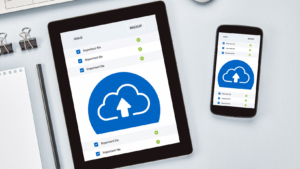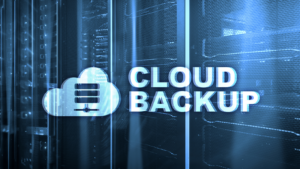In the digital age, data is the lifeblood of any business. For small businesses, protecting that data becomes even more crucial. It’s not just about safeguarding business secrets, it’s about ensuring continuity, even when disaster strikes.
Small business backup solutions are the unsung heroes in these scenarios. They’re the invisible safety nets that keep businesses afloat amidst technical glitches, cyberattacks, and unforeseen calamities. This article will delve into the importance of these solutions, their types, and how they can be the difference between survival and shutdown for small businesses.
So, if you’re a small business owner, buckle up! You’re about to learn how to bulletproof your business data and ensure your enterprise’s longevity.
Small Business Backup Solutions
 In an era of pervasive digitization, small business backup solutions emerge as lifelines for small businesses. These tools help prevent data loss, assure business continuity, and offer protection against cyber threats, thus enhancing a business’s resilience and sustainability.
In an era of pervasive digitization, small business backup solutions emerge as lifelines for small businesses. These tools help prevent data loss, assure business continuity, and offer protection against cyber threats, thus enhancing a business’s resilience and sustainability.
Data functions as the lifeblood for contemporary businesses, and in the small business context, it plays an even greater role. Various operations, such as customer service, sales, marketing, and even production, revolve around data. This integral component, when analyzed effectively, offers insights that can drive strategic decision-making, facilitate growth, and bolster competitive advantage. For example, customer data can inform product development, marketing strategies, and service adaptations, thereby enabling small businesses to better meet customer needs and preferences.
Risks of Data Loss
Despite data’s critical role, small businesses face considerable risks related to data loss. These risks manifest from various sources, including system malfunctions, human errors, cyber-attacks, and natural calamities. For instance, a severe system crash could wipe out valuable customer or sales data, impacting business operations. Similarly, a successful cyber-attack could result in compromised or stolen business data. In both cases, the absence of a robust backup solution would translate into irrevocable data loss and significant business setback. This situation underscores the importance of employing comprehensive backup solutions as part of a small business’s overall risk management strategy, ensuring that it can restore data swiftly and efficiently when required.
Types of Backup Solutions for Small Businesses
 The selection of small business backup solutions is manifold, providing small businesses with options to secure their data. These include cloud-based, on-site, and hybrid solutions.
The selection of small business backup solutions is manifold, providing small businesses with options to secure their data. These include cloud-based, on-site, and hybrid solutions.
Cloud-based backup solutions allow small businesses to store their data off-site in a secure cloud environment. They provide ample storage space, and businesses can scale their storage needs based on growth. Cloud providers offer robust security measures, including encryption and regular updates, to ensure data protection. Furthermore, accessing data from the cloud is not location-bound, giving flexibility to business operations.
On-Site Backup Solutions
On-site backup solutions serve as local data repositories. Companies using this method store backup data in physical devices such as servers, hard drives, or other storage equipment located within their business premises. It offers immediate access to data and avoids the risks associated with transmitting data across networks. However, the risk of physical damage, such as fires, floods or theft, could result in potential data loss.
Key Features to Look for in Backup Solutions
 Backup solutions encompass numerous features, rendering them indispensable for small businesses. The following key attributes define a robust backup solution.
Backup solutions encompass numerous features, rendering them indispensable for small businesses. The following key attributes define a robust backup solution.
Crucial aspects in backup solutions include automation and scheduling. Automation facilitates periodic data backups without manual input, increasing data security. For example, backup software can automatically save changes to documents, maintaining multiple versions of each file. Additionally, scheduling allows for the setting of specific backup times, such as after business hours to avoid interrupting operations.
Security and Encryption
A paramount feature in backup solutions is security and encryption. Strong encryption transforms plain-text data into an unreadable format, preventing unauthorized data access. A good instance is the Advanced Encryption Standard (AES), widely adopted for data protection. Besides encryption, comprehensive security measures, such as two-factor authentication or intrusion detection systems, strengthen data protection.

